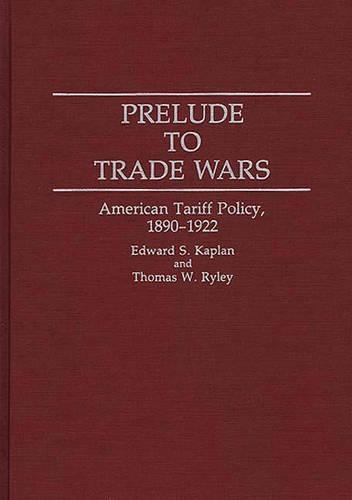
Prelude to Trade Wars: American Tariff Policy, 1890-1922
(Hardback)
Publishing Details
Prelude to Trade Wars: American Tariff Policy, 1890-1922
By (Author) Edward Kaplan
By (author) Thomas Ryley
Bloomsbury Publishing PLC
Praeger Publishers Inc
30th January 1994
United States
Classifications
Tertiary Education
Non Fiction
International trade and commerce
Economic history
382.0973
Physical Properties
Hardback
160
Width 156mm, Height 235mm
454g
Description
The tariff policies of the 1890-1922 led to the development of tariff rates that launched the United States on a path that led to later trade wars. The Republican Party and Porter McCumber took the lead in promoting these policies, claiming that the tariff would protect new and struggling industries. In many instances, items subjected to high tariffs were not in conflict with industries in the United States. In addition, although the tariff covered agricultural products, it was not sufficient to halt an agricultural decline. This work traces the course of U.S. policy through five tariffs which preceded the Fordney-McCumber tariff of 1922, when the tariff was used for both protection and revenue. McCumber's economic nationalism combined with his internationalism in other areas is detailed in the work.
Author Bio
EDWARD S. KAPLAN, a Professor with the Social Science Department at New York City Technical College of the City University of New York, teaches Macroeconomics, Microeconomics, Money and Banking, and his speciality, Economic History of the United States. He has written several articles on twentieth century U.S. economic history. THOMAS W. RYLEY is Adjunct Professor of History and Political Science at Molloy College. He is Professor Emeritus from New York City Technical College of City University of New York. He is the author of A Little Group of Willful Men and the co-author of The Jewish Seat: Anti-Semitism and the Appointment of Jews to the Supreme Court.
